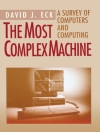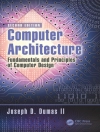Following two successful events in Guilin, People’s Republic of China (KSEM 2006) and in Melbourne, Australia (KSEM 2007) the third event in this conference series was held for the first time in Europe, namely, in Vienna, Austria. KSEM 2009 aimed to be a communication platform and meeting ground for research on knowledge science, engineering and management, attracting high-quality, state-of-the-art publications from all over the world. It offers an exceptional opportunity for presenting original work, technological advances, practical problems and concerns of the research community. The importance of studying “knowledge” from different viewpoints such as science, engineering and management has been widely acknowledged. The accelerating pace of the ’Internet age’ challenges organizations to compress communication and innovation cycles to achieve a faster return on investment for knowledge. Thus, next-generation business solutions must be focused on supporting the creation of value by adding knowledge-rich components as an integral part to the work process. Therefore, an integrated approach is needed, which combines issues from a large array of knowledge fields such as science, engineering and management. Based on the reviews by the members of the Program Committee and the additional reviewers, 42 papers were selected for this year’s conference. Additionally, two discussion panels dealing with “Knowware: The Third Star after Hardware and Software” and “Required Knowledge for Delivering Services” took place under the auspices of the conference. The papers and the discussions covered a great variety of approaches of knowledge science, management and engineering, thus making KSEM a unique conference.
Innehållsförteckning
Models in Knowledge Management.- Two Applications of Computer-Aided Theorem Discovery and Verification.- Knowware: The Third Star after Hardware and Software.- Required Knowledge for Delivering Services.- Mapping Relational Databases to the Semantic Web with Original Meaning.- Computing Knowledge-Based Semantic Similarity from the Web: An Application to the Biomedical Domain.- An Anytime Algorithm for Computing Inconsistency Measurement.- Forwarding Credible Information in Multi-agent Systems.- Convergence Analysis of Affinity Propagation.- Propagation of Random Perturbations under Fuzzy Algebraic Operators.- Two Approaches to Iterated Belief Contraction.- The Dual Spatial Connectives of Separation Logic.- Knowledge Engineering in Future Internet.- Developing Diagnostic DSSs Based on a Novel Data Collection Methodology.- Data Integration for Business Analytics: A Conceptual Approach.- New Labeling Strategy for Semi-supervised Document Categorization.- A Competitive Learning Approach to Instance Selection for Support Vector Machines.- Knowledge Discovery from Academic Search Engine.- Interactive Visualization in Knowledge Discovery for Academic Evaluation and Accreditation.- Aggregation Models for People Finding in Enterprise Corpora.- Debt Detection in Social Security by Adaptive Sequence Classification.- Ontology Based Opinion Mining for Movie Reviews.- Concept-Based, Personalized Web Information Gathering: A Survey.- The Online Market Observatory: A Domain Model Approach.- Data Driven Rank Ordering and Its Application to Financial Portfolio Construction.- Prioritizing Non-functional Concerns in MAMIE Methodology.- Verifying Software Requirements Based on Answer Set Programming.- Blending the Sketched Use Case Scenario with License Agreements Using Semantics.- A Comparative Analysis for Detecting Seismic Anomalies in Data Sequences of Outgoing Longwave Radiation.- On Optimization of Predictions in Ontology-Driven Situation Awareness.- On Undecidability of Cyclic Scheduling Problems.- Combination of Two KM Strategies by Web 2.0.- Measuring KM Success and KM Service Quality with Know Metrix – First Experiences from a Case Study in a Software Company.- Knowledge Creation Spaces: The Power of Project Teams.- Competence Management in Knowledge-Based Organisation: Case Study Based on Higher Education Organisation.- Knowledge Maturing Services: Supporting Knowledge Maturing in Organisational Environments.- How Much Well Does Organizational Knowledge Transfer Work with Domain and Rule Ontologies?.- Ontology Evaluation through Assessment of Inferred Statements: Study of a Prototypical Implementation of an Ontology Questionnaire for OWL DL Ontologies.- Knowledge-Based Process Modelling for Nuclear Inspection.- Two Dependency Modeling Approaches for Business Process Adaptation.- The IT-Socket: Model-Based Business and IT Alignment.- Identifying and Supporting Collaborative Architectures.- An Examination of Talent Management Concepts in Knowledge Intensive Settings.- A ‘Soft’ Approach to TLM Requirements Capture to Support Through-Life Management.












